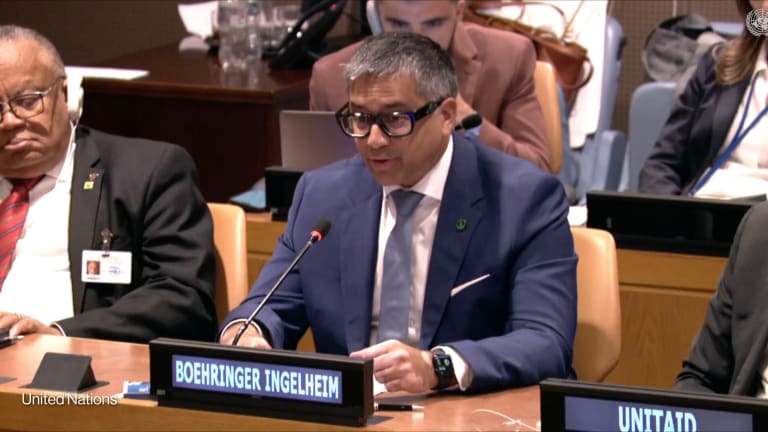With attacks against health workers on the rise, advocates call for action

BELFAST, Northern Ireland — Attacks against health workers have increased under the strain of COVID-19, according to a cohort of medical and humanitarian organizations. In a joint declaration, they call for governments to do more than talk about it.
The 13 organizations, which include the International Committee of the Red Cross, International Council of Nurses, and Physicians for Human Rights, say they collectively represent more than 30 million health care professionals. They are pushing for countries to implement domestic laws against such attacks, provide safer working environments, offer mental health support, and tackle the misinformation that can lead to fear and stigmatization.
Calls for DFID to help tackle violence against aid workers
U.K. lawmakers have called on DFID to take the lead on tackling violence against aid workers after some 270 were killed or injured last year — the second-worst year on record for aid worker security.
“If health policymakers can include this topic in their deliberations, if health care managers take this seriously, if this topic is put on the table thanks to data, if we have appropriate legislation, if we have the right communication about it, and if individual health care workers receive appropriate training and support that allows them to de-escalate these situations, it will prevent [attacks],” said Maciej Polkowski, head of ICRC's Health Care in Danger initiative, which aims to address violence against patients, health workers, facilities, and vehicles.
“We see a lot of talk, declarations, conferences, meetings, groups, and so on and so forth, but we don’t really see that much action on the ground, and at the end of the day, that is what’s going to make a difference,” he said.
Since the beginning of the pandemic, ICRC has recorded over 200 incidents of violence against health personnel and facilities in more than a dozen countries. These include workers being blocked from boarding public transport, doused in bleach, and pelted with stones. Such incidents are being seen in Mexico, Brazil, India, Italy, Spain, and the U.S., among other countries.
While this issue is not new, attacks are often exacerbated in emergencies, such as the current pandemic, Polkowski said. Many incidents are related to the stigmatization that health care workers are facing because of their increased exposure to the coronavirus and the fear they could spread it, he added. According to the International Council of Nurses, over 90,000 health care workers may have been infected with the virus.
“We see a lot of talk, declarations, conferences, meetings, groups, and so on and so forth, but we don’t really see that much action on the ground.”
— Maciej Polkowski, head, ICRC Health Care in DangerGovernments need to take steps to implement laws that deter violence against health workers, Polkowski urged. Lessons can be learned from India, he said, where legislation was recently amended so attackers could face up to seven years in prison for severe acts of violence against health workers.
In Niger, members of the country’s armed and security forces, Ministry of Public Health, the Red Cross Society of Niger, and health workers’ unions have created a select committee to address the issue. “We need more countries to do the same,” Polkowski said.
In the meantime, there are also actions that health facilities themselves can take to stave off attacks, advocates say. A checklist developed by ICRC recommends controlling entrances and exits, conducting a risk analysis of the area, and ensuring staff know how to de-escalate tension — for example, by avoiding jargon, mirroring language to demonstrate listening, and offering choices to create a sense of agency.
Visit the Duty of Care series for more coverage on how health systems can function better so that health care workers are supported and protected. You can join the conversation using the hashtag #DutyOfCare.

Search for articles
Most Read
- 1
- 2
- 3
- 4
- 5








